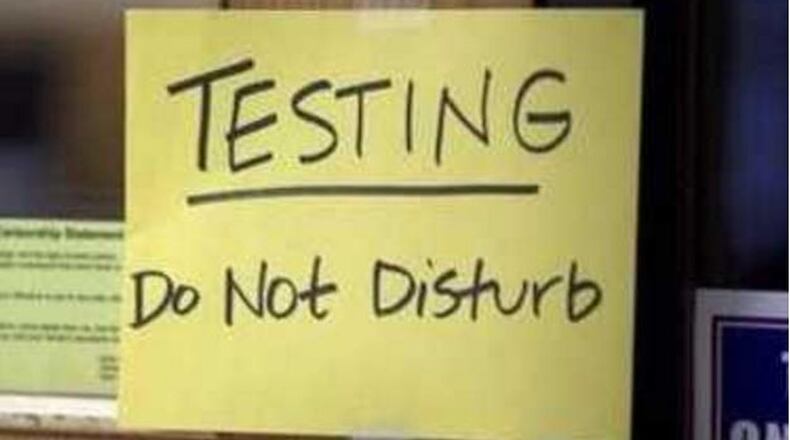But the substitute version passed 8-1 Tuesday by the Senate Education Committee says the state superintendent “may” choose to submit a waiver request, after consulting with at least eight education community stakeholders. The next step is for the full Senate to vote on the bill, which could happen as soon as Wednesday.
A majority of those groups, including agencies representing teachers, superintendents and school boards, favor canceling state tests this year. But another of the stakeholders listed is the Ohio Excels business-education group, which has strongly opposed canceling state tests and was the group that pushed last month for stakeholder approval of any testing waiver.
State Superintendent Paolo DeMaria did not immediately respond Tuesday to questions about whether he would seek a testing waiver if the bill passes.
Most of Ohio’s K-12 students take state reading and math tests each spring from third to eighth grade, science tests in fifth and eighth grade, and end-of-course exams in seven subjects across their high school years. Of those 21 tests, 17 are federally mandated.
The Trump administration this fall said it would not waive federal testing requirements for 2020-21. President-elect Joe Biden’s transition team has not announced a formal position on the issue.
Test opponents say the logistics, technology and security of administering the exams, which are usually tightly controlled, could be impractical if many students are learning from home. They also argue student growth data produced might not be valuable in comparing students who learned via different models or had multiple quarantine periods.
Testing supporters say it would be irresponsible to go two years without testing to make sure certain groups of students aren’t falling behind. And they say having the data on groups that learned differently might be a good thing.
Graduation rules
Senate Bill 358 would extend a key provision from last spring for another year. Due to COVID-19 disruptions, a school’s principal could grant a diploma to any student who was otherwise on track to graduate if he or she determines the student has successfully completed the high school curriculum or their individualized education program.
Also, in case high school end-of-course exams continue, students who miss those tests due to COVID-19 issues (including quarantine or remote learning), could use their classroom grade in that course toward graduation, in place of the usual test score.
Third-grade promotion
Most Ohio third graders normally have to achieve a certain score on a state reading exam to advance to fourth grade. Senate Bill 358 says those students should not be held back based solely on a test score, but only if the principal and reading teacher agree the student is unprepared to move up.
State report card
The bill also would cancel overall grades and component grades on the 2020-21 state report card, in part because the state test data that is the report card’s foundation likely would not exist.
Penalties for previous years’ poor report cards — such as ruling a school’s students eligible for private-school vouchers, or designating schools as “challenged districts” where new charter schools can open — would stay in place.
Similarly, with no new ratings for charter school sponsors, any incentives or penalties that were in place from previous years’ ratings would stay in place.
Academic distress
SB 358 would extend the freeze on new state takeovers of school districts that score poorly on state tests. It would also allow districts currently overseen by Academic Distress Commissions to seek an end to that governance.
To do so, the school would have to submit a proposal to a new state-level committee, and the state superintendent would eventually rule on whether control should go back to the local school board.
About the Author

